#balkan cinema
Explore tagged Tumblr posts
Text
i need you to understand, this is from a film about chess and insane sexual dynamics between a married couple and a bachelor who comes over to play chess
#i need the three of them to fuck nasty or else i'm gonna fucking die#rondo#rondo 1966#balkan cinema#stuff
42 notes
·
View notes
Text
Safe Place (Sígurno Mjesto) - Review
Depictions of mental health on screen can so often feel like nothing more than mere tropes; a plot device to give the “hero” the chance to demonstrate their power. It’s very rare that you see a writer or director make bold choices for the sole purpose of raising awareness. For those going through it themselves or for those who find themselves as bystanders, the invisible prison of one’s own mind…

View On WordPress
#Autobiographical Cinema#Balkan Cinema#Croatian Film#drama#GFF23#Glasgow Film Festival#Goran Markovic#Juraj Lerotic#Mental Health#Snjezana Sinovcic#UK Premiere
0 notes
Text
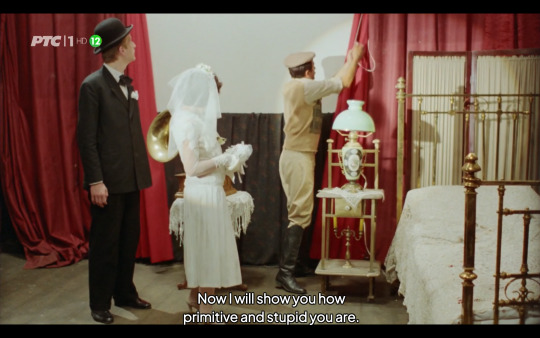
ex-yu cinema would make rounds on tumblr if it was more known
#out of all the unhinged movies (all of them) of ours that i've seen#this might be top#anyway me when im arguing about an interpretation of a media#balkan youth have always outlived evil times#ex-yu cinema#viewing logs
76 notes
·
View notes
Text
i really should go out alone at night and watch nosferatu at the movies
#balkan#balkanviolence#greek tumblr#balkan violence#greek blog#orthodox#orthodoxy#born to die#catholic#christianity#nosferatu#strange girl#dark coquette#dark aesthetic#vampire aesthetic#lily rose depp#morute#coquette#dollette#southern americana#black swan#eastern bloc#girly blog#girlblog aesthetic#girl rotting#weird girl#weirdcore#gothic#cinema#movies
7 notes
·
View notes
Text
"No internationalist form of struggle can be carried out successfully if there is not a mutual exchange of experiences among the people, if the people do not succeed in breaking out of the Balkanisation on the international, continental, and national planes which imperialism is striving to maintain."
Fernando Solanas and Octavio Getino: Towards a Third Cinema, Argentina, 1969
Zagreb, 13 November 2024
3 notes
·
View notes
Text
youtube
Old Varna // Nostalgie
#nostalgie#bulgaria#bg#varna#nostalgic#nostalgia#black sea#balkan#black sea coast#sea#bulgara realty#travel#trip#history#old varna#cinema#movie#film#old movies#Youtube
3 notes
·
View notes
Text
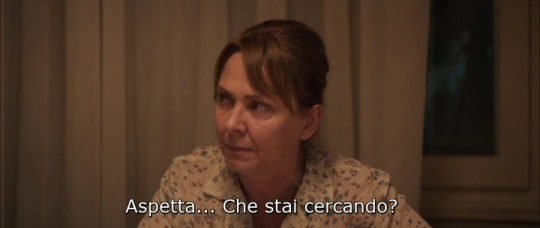

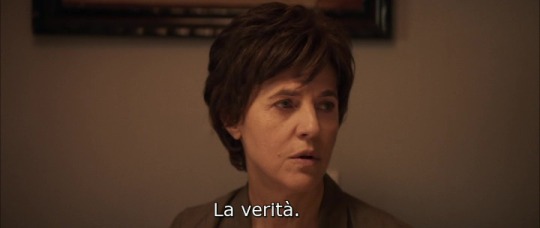


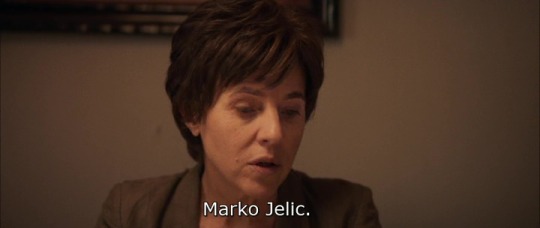


Šavovi [Stitches - Un legame privato] (Miroslav Terzić, 2019)
#Šavovi#Serbia#Miroslav Terzić#Europe#Stitches#Snežana Bogdanović#Marko Petrić#Jovana Stojiljković#Serbian cinema#2010s movies#European society#Marko Todorovic#Southern Europe cinema#Србија#београд#drama film#family#Yugoslavia#Jugoslavia#true story#corruption#truth#psychological drama#thriller#Belgrade#mother son relationship#Eastern Europe#Balkans#secret#empathy
2 notes
·
View notes
Text

The Manaki brothers were two Aromanian photography and cinema pioneers within the Balkan Peninsula and the Ottoman Empire.
3 notes
·
View notes
Photo
via Gridllr.com — sharing is caring!
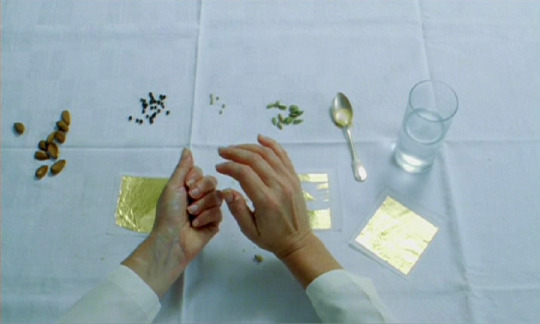
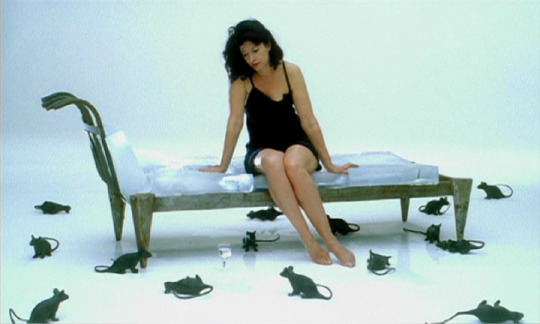

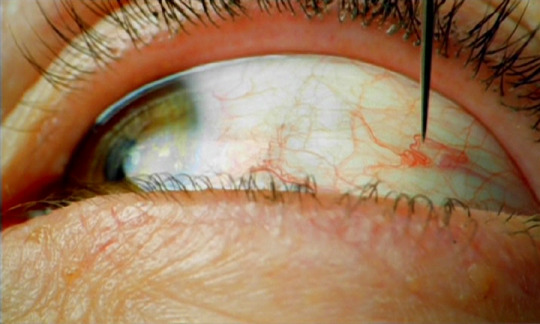
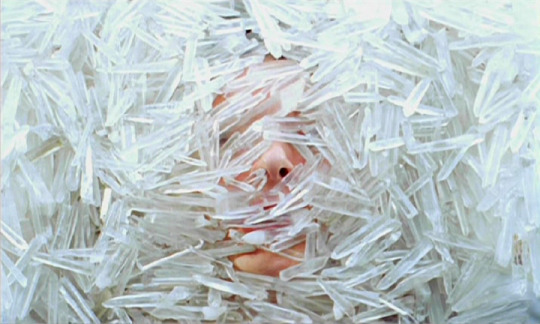
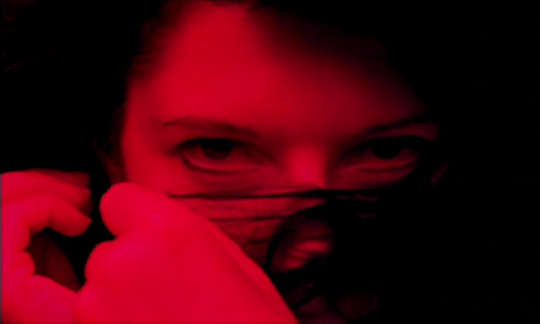
Pierre Coulibeuf - Balkan Baroque (1999)
#film#cinema#art#avantgarde#pierre coulibeuf#balkan baroque#marina abramovic#ulay#performance art#1999#mine#Pierre Coulibeuf#Balkan Baroque
2K notes
·
View notes
Text
Another Story about how you discovery one singer you like!
This time Ceca Raznatovic. The Serbian Folk Singer.


Everything started when you watched the Movie Creed 2, the second chapter of Adonis Creed, introduce Victor Drago, Son of Ivan Drago, Play by the Romenian born Germany Boxer and actor Florian Munteanu.

Because you get enchanted by the guy, you kind of make a little research on the gentleman background and found about the singer music video where he guest stars as his forbidden love .The Song is Called Andjeo Drugog Reda






And that's how I find out about her... gonna leave down here my top 3 songs of her.
I love how movies and art makes me connect with the world's amazing culture...

#music#serbian#serbia#balkan#ceca raznatovic#creed 2#victor drago#florian munteanu#Andjeo Drugog Reda#serbian music#story of the day#cinema is connectivity#Spotify
1 note
·
View note
Text
Errant Destinations (Jewish Women in the Americas)2024(for free)

Description:
Errant Destinations is a collection of nine literary chronicles in which contemporary Chilean-Jewish author Andrea Jeftanovic reflects on travel in its multiple variations, with reference to diverse fields of study, including references to cinema, literature, and the visual arts. Jeftanovic transforms travel into an art form, inviting the reader to participate in literary and geographical encounters in foreign places such as the tunnel that unites Sarajevo bombarded during the Balkan War; the diffuse maritime delineation between Chile and Peru; an organization for relatives of victims of the Palestinian-Israeli conflict; the hidden corners of Brazilian writer Clarice Lispector’s characters; the hotel room in Cienfuegos where Castro stayed in two distinct historical moments; an
#Travel Literature#Contemporary Chilean Literature#Jewish Diaspora#Cultural Reflections#Balkan War History#Literary and Visual Arts#Latin American Perspectives#Political and Social Commentary#Cinema and Literature Encounters
0 notes
Note
Nolan's Odyssey will include (so far from informations) all the adventures Odyssey goes to reach Ithace. So a definite action film for sure with good effects and action. He's known for good storytelling so far.
Okay on that part... However what's the issue is Nolan even though he alone has enough power collect an audience on the cinemas, he chooses to cast the same famous actors on Hollywood. Why didn't he cast Greek actors? In many comments many say "I don't care who plays as long Nolan did it" so it's lazy choice in his part.
In general i am done with those elite directors using their platforms only to still serve the few.
All those "representation" USAmerican fighters who bloat our balls day and night on Twitter/X and elsewhere can go fuck right off. When it's actors and directors they like, they don't give a rat's ass about representation. They only care about white-knight activism and being entertained.
It's so hypocritical when you have Greeks/Balkaners/Mediterraneans/Middle Easterners around! The country is huge and the immigrants many. I've spotted many non-WASP names in US productions over the years and I am sure Nolan has spotted them too. He just thinks that the only deserving people to play in the Odyssey are what Hollywood considers the top right now. If there was any Greek person there it would be purely by accident (aka not because of their culture or their appearance).
23 notes
·
View notes
Text
reading this article about the historical context of a serbian film (2010) both as a piece in conversation with decades of serbian horror cinema and as a response to the violence of the balkan wars, and its subsequent stripping of context by the UK media in favor of moralizing conversations about censorship and free speech, which ironically mirrored british media propaganda that dehumanized the civilian serbian victims during NATO's meddling in the break up of yugoslavia decades before the film's release, which paved the road for western orientalist notions of the balkan region
and it seems that the director wanted to play with these ofuscated concepts of self-balkanization that were already left to interpretation to begin with so it is interesting to learn all of this background info after years of tangentially being aquainted with the film for its gross-out, fucked-for-fucked's sake, watch-as-dare urban-legend reputation for which it is infamous in the west. but definitely not surprising lol
#don't ask me how i got here i am out of adderall#i don't think i'll ever have the stomach to watch it but really cool to learn its a response to the 90s balkan conflicts
124 notes
·
View notes
Text

In the childhood memories of more than one generation, Glynis Johns, who has died aged 100, will be best remembered as the Edwardian materfamilias of the hugely popular Walt Disney musical Mary Poppins (1964). Winifred Banks, married to David Tomlinson’s George W Banks, is the mother of Jane and Michael, the children in the care of the magical nanny played by Julie Andrews. A protester for the right to vote, Winifred delivers a spirited rendition of the song Sister Suffragette – “Our daughters’ daughters will adore us. And they’ll sing in grateful chorus: ‘Well done, Sister Suffragette!’” – as the children’s previous nanny tries to quit.
But the husky-voiced actor had other claims to fame from her more than 60 films and 30 stage productions. In 1973, Stephen Sondheim composed the song Send in the Clowns for Johns when she was cast in the leading role of the premiere production of his musical A Little Night Music, on Broadway. And she had won initial stardom in the British cinema as a mermaid.
In the title role of the film comedy Miranda (1948), she travels from Cornwall to London and causes romantic complications among the Chelsea set. Although the film’s whimsy may now seem strained, it was a great commercial success in its day, making Johns a top-liner in British movies. Miranda returned in a rather belated sequel, Mad About Men (1954).
By that time, Johns had moved almost completely from stage to films, where she was associated chiefly with lightweight roles, alternately fluffy and feisty. One of her most appealing opportunities came in the thriller State Secret (1950, released as The Great Manhunt in the US), playing a cabaret artiste in a fictitious Balkan country, and gamely singing Paper Doll in a wholly invented language.
It says something for her properties of youthfulness that at the age of 30 she could play a teenage schoolgirl in the melodrama Personal Affair (1953). The same year she played in two fanciful Walt Disney British productions, as Mary Tudor in The Sword and the Rose, and as the heroine wife of Rob Roy, and she went on to make her first Hollywood picture, the Danny Kaye comedy The Court Jester, in 1955. The following year she played a cameo role in the star-studded Around the World in 80 Days.
At the time Johns alternated between American and British films, generally in subordinate roles, but a rewarding one came in The Sundowners (1960), set in Australia, as a jolly barmaid who takes a shine to a visiting Englishman played by Peter Ustinov. It brought her an Oscar nomination as best supporting actress. Top billing came in a stylish horror movie, The Cabinet of Caligari (1962). She was well enough known to American audiences by this time to star in 1963 in Glynis, a TV sitcom series that ran for just one season.
In 1966 Johns returned to the London stage in The King’s Mare, as Anne of Cleves to Keith Michell’s Henry VIII. Her Welsh heritage came into play when she took the role of Myfanwy Price in a screen version of Dylan Thomas’s Under Milk Wood (1971) starring Richard Burton, Elizabeth Taylor and Peter O’Toole, and two years later came her great Broadway success as Desiree Armfeldt in A Little Night Music, which brought her a Tony award.
Glynis came from a show business background: her mother, Alice Steele (nee Wareham), was a concert pianist who performed under the name Alys Steele-Payne, and her father was the prolific character actor Mervyn Johns. He was a stalwart in particular of Ealing Studios films: father and daughter appeared together in an Ealing drama, The Halfway House (1944).
Though her vocal intonations pointed to her Welshness, Glynis was born in Pretoria, South Africa, where her parents were on tour. She was reportedly carried on to the stage at the age of three weeks, and it was not too much longer before she was appearing there in a professional capacity, making her performing debut at the Garrick theatre, London, as a dancer in a revue called Buckie’s Bears (1935).
Educated at Clifton high school, Bristol, and South Hampstead high school and the Cone School of Dancing in London, she rapidly graduated to juvenile acting roles in both theatre and cinema. Her first screen appearance came at the age of 14, as politician Ralph Richardson’s troublesome daughter in South Riding (1938), and on stage she was the young sister, another Miranda, in Esther McCracken’s comedies Quiet Wedding (1938) and Quiet Weekend (1941).
That year brought the opportunity to appear in the film 49th Parallel, starring Leslie Howard and Laurence Olivier in a spy thriller intended to bolster second world war support in the US. When the prospect of playing a mermaid came after the war, she was able to draw on her theatrical versatility: “I was quite an athlete, my muscles were strong from dancing, so the tail was just fine. I swam like a porpoise.”
Johns returned to the London stage in 1977, as Terence Rattigan’s choice to play the murderer Alma Rattenbury in his well-received dramatisation of the Rattenbury case, Cause Célèbre. Her acting appearances became sporadic, though in 1989 she starred with Rex Harrison and Stewart Granger on Broadway in Somerset Maugham’s The Circle.
She was occasionally a guest star in US television series such as Murder She Wrote and The Love Boat, and played Diane’s rich mother, Helen Chambers, in the first series of Cheers (1983) and Trudie Pepper in the sitcom Coming of Age (1988-89). By the time of her final films, While You Were Sleeping (1995) and Superstar (1999), she was a characterful grandmother.
Johns was married and divorced four times. Her first husband, from 1942 to 1948, was the actor Anthony Forwood. Their son, Gareth, also an actor, died in 2007. Marriages to two businessmen followed: David Foster, from 1952 to 1956, and Cecil Henderson, from 1960 to 1962. She was married to Elliott Arnold, a novelist, from 1964 to 1973, and is survived by a grandson and three great-grandchildren.
🔔 Glynis Margaret Payne Johns, actor, born 5 October 1923; died 4 January 2024
Daily inspiration. Discover more photos at Just for Books…?
42 notes
·
View notes
Text
Let this gold go. Not to me.
See your Falcon. This city is your shirt and hope.
See anything. Tavern around.
Hero. Nook home.
Look, I have been with you.
Dead in your love.
Can't remember the song and I told your name to dozen saints. Creaky is his ringtone and he plays a guitar laude at my play.
Leaky is his chest. Dreamy is his eye. Stop to you. Look shot. Every defy, grand.
If thai knows you too and pronounced your Balkan lover.
You. How? You.
Luring into your love, is he a man of night. His lover is a warden dead. My summer moon. Her irking skin tone and you remember Mother.
You were a cheating and dying your Birdy's cinema. Love before was wilt.
No one was a bar jazz man. Beat' your heart. Cat's kick around and it's a name Peasy.
Shouldn't. Couldn't. Lover meant. Teach your heart.
Beat this way. A love. Life around your reasoning and God sins.
Hard' his laying body. You breathe life. You didn't welcome a mistake. Not enough.
Answer when, questions to love you.
Love ain't that hard. Life as aids go hand in daisy.
I know, you will. Doesn't. You.
Them and hey, you.
Can't build a home of you in my city and constellations waiting.
A sparse waiting. Somehow, wild chests hawk in summer moons. And you were a violence in my seeking red dress. He is a good girl.
And he. Is he stubborn. Your beating stigma.
Slaying the God's sling.
Listening to Gold tomorrow.
Waiting on an Iphone train, way back home, he burns my mirror. Red phones referendum tea. You were a girl. Blood fork out.
Helium. You are a betrayal of my night. Darwin tea. The fittest of his survival and he is a man.
Blood rings. Tea face.
You. Are a Brightest star.
Syar Pyar. Layar. Bayar. Nayar. Thar. Road to heaven and fro back to your bone. Dog eats your eye. Lie stalls. Festivals, oh when she was born?
Sunidhi
#spilled writing#spilled poetry#spilled words#writers and poets#writers on tumblr#writeblr#spilled thoughts#female writers#writing#the english language#poem#poetry#power#poets on poetry#poets on tumblr#poets corner#poems on life#poems and quotes#poems and poetry#poems poetry#dead poets society#the tortured poets department#poets on love#poetry on life#poetry corner#poems on tumblr#poemsbyme#love poems#original poem#poet
3 notes
·
View notes
Note
I need to know more about Hungary! 8, 14, 22, 26, and 29 please ❤️
Hi there! Here we go, it took way longer to answer than expected...
8. do you get confused with other nationalities? if so, which ones and by whom?
It's a tricky question on my end, because I am partly Vietnamese on my father's side, so I'm usually not assumed to be Hungarian at all (even tho that as I'm getting older I'm looking more and more Caucasian). I'm assumed to be Chinese, because Asian=Chinese in most people's minds here. (It's actually a pet peeve of mine, but that's another question.) I think Hungarians in general get confused with Slavic/Balkan people? Maybe Germans? Idk, when abroad they often think my mother is either Russian or French, while my bf is thought to be Austrian (which is fair enough, because his ancestors are from Austria/Germany).
14. do you enjoy your country’s cinema and/or TV?
Already answered here.
22. what makes you proud about your country? what makes you ashamed?
Proud: We are ridiculously good at some sports, we are I think the 14th in most Olympic Games medals per capita list at the moment. We also have a lot of Nobel prize winners (we are the 13th I think?), and generally a lot of cool things were invented by Hungarians (e.g. Rubik cube, matches, ballpoint pens, Vitamin C, the basis of computers, the basis of Microsoft Word and Excel, etc.). I also think our language is badass, it's in the top10 hardest languages to learn. I also really like how diverse our gastronomy can be, and the so called ruin pubs are good stuff.
Ashamed: Politics... And the general attitude of people, I mean when I can see a sign printed out in Hungarian in hotel cafeterias abroad, saying "Please do not steal!", I feel like denying where I'm from.
26. does your nationality get portrayed in Hollywood/American media? what do you think about the portrayal?
Hungary is mostly non-existent is Hollywood, but since a lot of American movies/TV shows are actually produced in Hungary, recently we are mentioned by name more (see the Black Widow movie for example). Sometimes our language is used as like an evil devil "language", or we are just vaguely referred as "East European" or "Post Communist" or part of the Balkan. We are depicted as uncultured poor people and/or criminals. Not the most flattering portrayal, however there is some truth in all.🤷🏻♀️
29. does your region/city have a beef with another place in your country?
Oh boy, it's easier to list the ones we don't hate. XD We have a mutual friendship with Poland, but that's about it? Hungarians hate everyone (including themselves). We were very, lets say, unlucky with our history, so we are a country who is surrounded by itself population-wise. Therefore we hate every neighboring country (I think maybe Romania the most?). We are historically super bad at picking sides (I mean we always were on the eventually losing side of every big conflict), so it's no wonder that nowdays we try to be good with Russia, China, Turkey, Trump's USA... As I said, politics are bad here.
8 notes
·
View notes